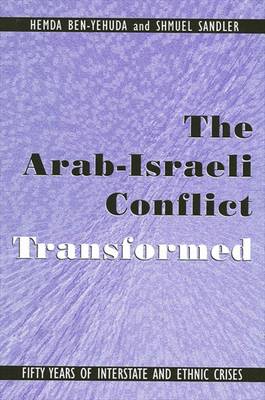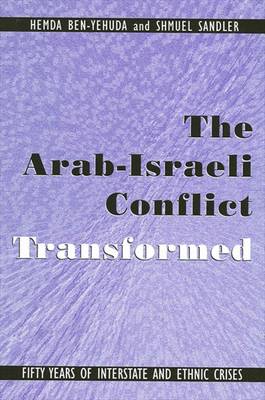
- Retrait gratuit dans votre magasin Club
- 7.000.000 titres dans notre catalogue
- Payer en toute sécurité
- Toujours un magasin près de chez vous
- Retrait gratuit dans votre magasin Club
- 7.000.0000 titres dans notre catalogue
- Payer en toute sécurité
- Toujours un magasin près de chez vous
The Arab-Israeli Conflict Transformed
Fifty Years of Interstate and Ethnic Crises
Hemda Ben-Yehuda, Shmuel SandlerDescription
Makes the perhaps surprising argument that in the last quarter of the twentieth century the Arab-Israeli conflict has been winding down.
The Middle East conflict, be it between the state of Israel and Arab states or between Jews and Palestinians, is a staple of international news. Utilizing both theoretical approaches and empirical evidence, Hemda Ben-Yehuda and Shmuel Sandler argue that despite the recent upswing in violence, particularly over the Palestinian issue, conflict has gradually been giving way, since the 1970s, to a more orderly regime of conflict management. By integrating ethnonational theoretical literature into their analysis, the authors move beyond the current International Relations debate over the relative merits of realist/neo-realist approaches versus neo-liberal-institutional approaches. Ethnic-state disputes are the primary source for failing to terminate the Arab-Israeli conflict.
Spécifications
Parties prenantes
- Auteur(s) :
- Editeur:
Contenu
- Nombre de pages :
- 306
- Langue:
- Anglais
- Collection :
Caractéristiques
- EAN:
- 9780791452462
- Date de parution :
- 04-04-02
- Format:
- Livre broché
- Format numérique:
- Trade paperback (VS)
- Dimensions :
- 152 mm x 235 mm
- Poids :
- 408 g

Les avis
Nous publions uniquement les avis qui respectent les conditions requises. Consultez nos conditions pour les avis.






